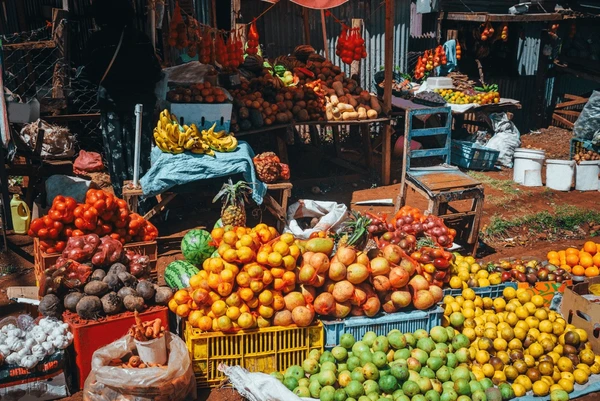Are your fruits, vegetables and frozen food items as healthy as they look? This blog post dives into the alarming use of industrial chemicals as preservatives in Nigeria, the health risks, and clarifies NAFDAC’s legal mandate to enforce safety.
We have all encountered seemingly flawless fruits, vegetables and frozen food items at the market. In a country where freshness is highly valued, these perfect-looking items are understandably appealing. However, growing concerns are emerging about chemical practices that may conceal hidden dangers beneath the surface.
For too long, people have quietly discussed this issue at markets and spread viral WhatsApp warnings. We must bring it into the open. Some sellers use substances like formalin and calcium carbide to extend the shelf life of fresh food items. This deceptive practice creates a significant public health threat.
Formalin, also called a solution of formaldehyde, primarily preserves dead bodies and disinfects industrial spaces. When sellers illegally apply it to produce like tomatoes, peppers, or fish, the chemical acts as a powerful preservative, keeping items looking firm and fresh for days longer than they naturally would.
Calcium Carbide is an industrial chemical used in welding and for producing fertilizers. When it comes into contact with moisture, it produces acetylene gas. This gas mimics the effect of a natural ripening hormone, causing fruits like bananas, plantains, or mangoes to appear perfectly ripe and yellow in a matter of hours.
Why are chemicals like Formalin and Carbide used?
The root of this problem lies in a major challenge of post-harvest loss, and a clear lack of deterrent for erring offenders. With inadequate storage facilities, unreliable power supply, and logistical hurdles in getting produce from farm to market, farmers and sellers face immense pressure. They are in a race against time to sell their goods before they spoil. This economic desperation creates a dangerous incentive.
The real cost
While these chemicals solve a business problem for a few, they create a severe health crisis for the public. These substances are not food-grade and were never meant for human consumption.
NAFDAC’s position and duty to enforce
The use of chemical preservatives in Nigeria is not just of public concern. It is a practice officially identified and condemned by Nigeria’s primary food safety regulator, the National Agency for Food and Drug Administration and Control (NAFDAC). Under its legal mandate, the agency is required to enforce regulations that protect the public from adulterated and unsafe food.
Although NAFDAC has acknowledged this threat through public warnings and occasional enforcement actions, a considerable gap persists between regulatory efforts and the reality on the ground. Public concern remains high, fuelled by the perception that the practice is still widespread. This sentiment was evident in the second and third quarters of 2025, when a surge of social media activity from citizens, including the quoted post by Raymond Tor as well as Stella Oluchi Ofor‘s post “Say no to formalin” as a preservative for liquid soaps, brought renewed attention to the issue, underscoring the ongoing challenge and the urgent need for more consistent enforcement.


